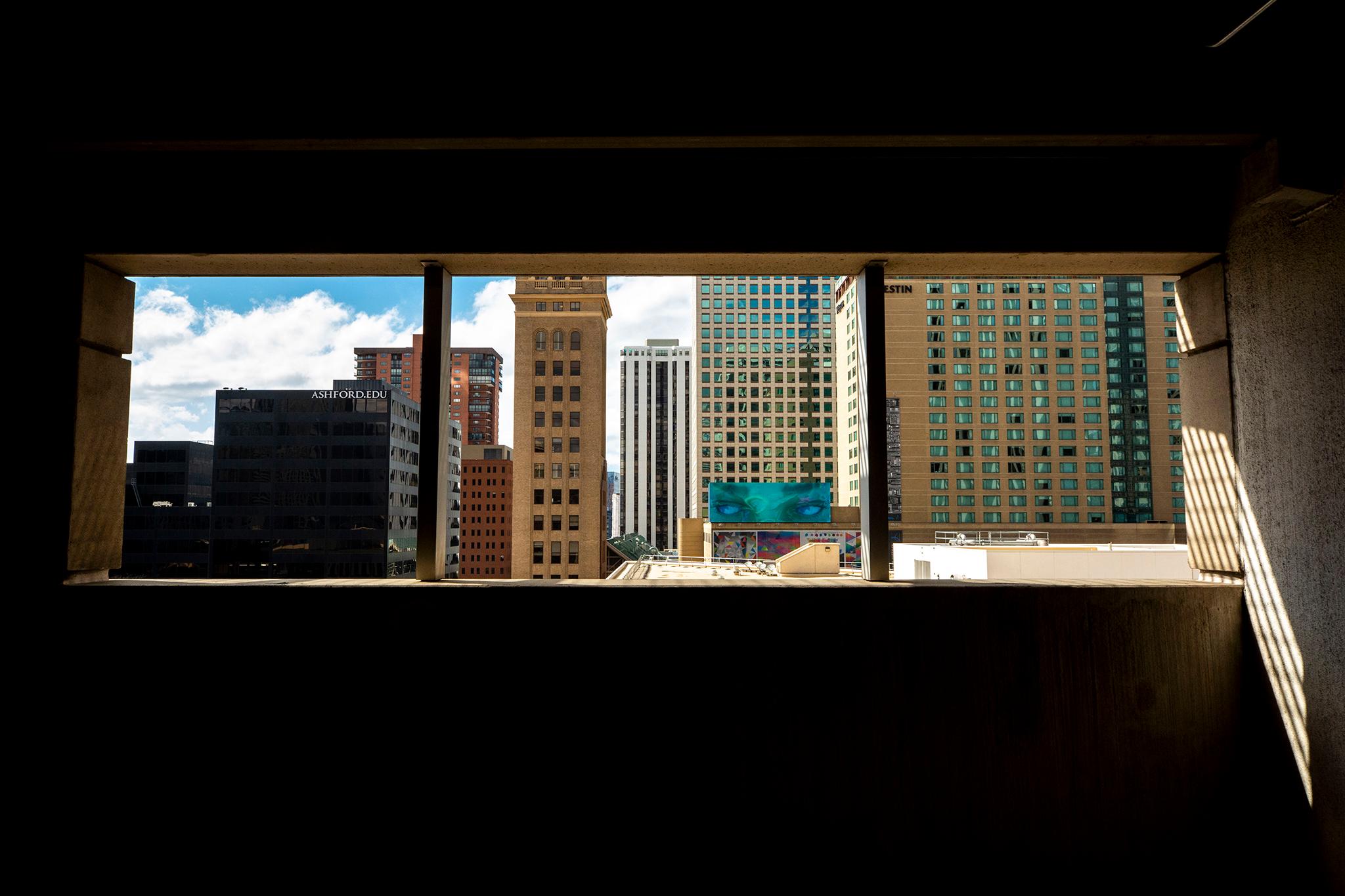
Businesses across Colorado are still feeling the effects of the surge in COVID-19 cases driven by the highly contagious omicron variant even as the rate of infection appears to be slowing.
For many of them, the lessons they learned earlier in the pandemic are informing what they do now, and they say the ones they are learning now will carry them into the uncertain future.
“I feel like we're still in the heart of it,” said Kerry Siggins, CEO of StoneAge, a Durango-based company that designs and produces water-blasting tools for industrial cleaning. “We can keep the lights on and make sure that we're answering customers' calls and getting things out the door. But overall, I would say productivity has plummeted because we've got so many people out sick.”
StoneAge weathered the earlier days of the pandemic with relatively few cases, Siggins said.
Omicron is different.
“Who knows where it’s coming from because everybody’s getting it,” said Siggins, who is hopeful the current wave among her staff will start to recede in the coming weeks.
Almost two years into the pandemic, businesses of all kinds are still scrambling to figure out how to keep people safe while at the same time maintaining the day-to-day operations that made them successful in the first place.
Finding vaccinated and masked workers can be challenging
The sheer transmissibility of the omicron variant has made things more complicated, forcing companies to revisit practices from the early days of the pandemic — and to confront new challenges.
For Johnson Storage and Moving, a Denver-based moving company that does residential and commercial jobs throughout the western U.S., the prevalence of vaccine mandates at other businesses has affected how they do business themselves.
Many large companies recently started requiring proof of vaccination for anybody that enters a building, according to Johnson President Don Hindman. Some of these moves require dozens of people, he said, and it can be difficult to find enough vaccinated workers to staff the jobs.
“Before Omicron, companies were not adamant about getting fully vaccinated crews,” Hindman said. “It's been really hard because the fact of the matter is that a lot of our crew members don't want to get vaccinated. They're guys in their twenties — they think they're Superman … That’s been a real stressor for us.”
Residential customers, too, are demanding crews be masked again, Hindman said.
“There was a time last summer when our customers quit caring,” he said.
So, what’s going on in the High Country?
In the state’s resort communities, ski season is in full swing. That means the bars and restaurants in Colorado’s mountain towns have to strike the right balance between letting people enjoy themselves and being responsible members of the community.
Rodney Johnson is the general manager at Los Amigos, a restaurant in Vail known for its expansive deck next to the gondola in Vail Village. People want to have a good time and are ready to let loose, and they seem relatively unconcerned with the spread of omicron compared to previous waves, he said.
“That’s what you hear from people — ‘I’m so tired of this, I’m so over this, I’m done with this,’” he said.
Eagle County, where Los Amigos is located, recently dropped its indoor mask mandate. The restaurant waited a little while to do it, but it eventually did too, Johnson said.
“Of course for us, it makes it tougher because we’re an international resort .… With the amount of people that keep coming through there, you just don’t know,” he said.
But it’s not all bad news for businesses. Despite worsening staffing shortages, protracted supply chain issues and the inflationary pressure being felt throughout the economy, many are thriving. For example, the past two years have been good for the bottom line at Los Amigos, according to Johnson.
“Both years have been … pretty productive and profitable,” he said.
The restaurant was able to keep staff employed with federal pandemic aid early on, and its owners even invested some of the cash in updating their computer systems to accommodate the boom in online ordering, Johnson said. Roughly $15 billion in federal Payroll Protection Program loans were granted in Colorado, helping businesses of all sizes get through the initial COVID shutdowns.
Investing in technology and remote work
The pandemic pushed a lot of businesses to fast-track technology investments. StoneAge in Durango sped up investment in a digital platform to replace in-person sales meetings, CEO Siggins said. It’s been a huge hit with customers.
“People loved it .… We thought it was always going to have to be face-to-face to really sell this type of equipment. We learned that a digital experience is something that our customers liked, and it made it really easy to get information,” she said.
Meanwhile, jobs for the moving company resumed shortly after coming to a standstill when COVID-19 first hit. With the exception of the first few months, business has boomed throughout the pandemic, according to Hindman, bolstered by people moving out of big cities in search of more space.
Now, there’s a lot of work from companies that are reconfiguring office space to accommodate social distancing and hybrid work models, and in many instances, vacating space all together, Hindman said.
Business leaders are now looking ahead to when COVID-19 becomes an endemic disease, widespread enough that life — and work — can start to return to looking more normal. At StoneAge, they are experimenting with isolated workspaces where people infected with COVID-19 that are largely asymptomatic can perform tasks without coming into contact with other employees.
“We can’t shut down businesses every time a new variant comes through. I think we’re going to be dealing with COVID for quite some time,” said Siggins of StoneAge. “We need to figure out new ways to be able to adapt to it so that people can feel safe being at work, feel appreciated being at work, but also be at work.”









